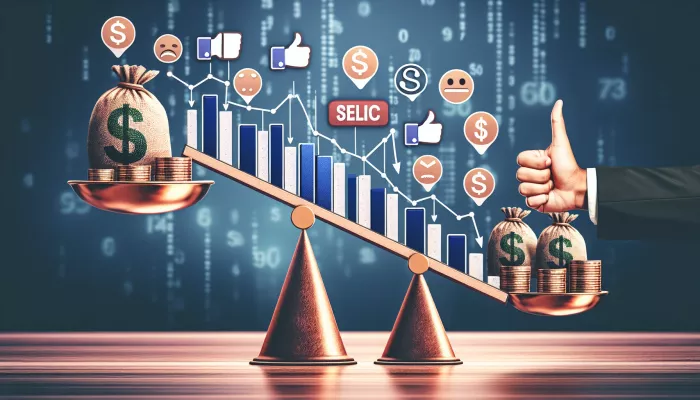

Variable expenses are those that fluctuate depending on the volume of activities or consumer demand.
Unlike fixed costs, which remain constant regardless of a company's operations or personal spending habits, variable expenses can increase or decrease from month to month.
Understanding your variable expenses is crucial for several reasons. First, they can significantly impact your monthly budget, whether in the context of a business or personal finances.
Second, the ability to manage and forecast these expenses can lead to better financial health and better investment decisions.
Variable expenses can be a budgeting challenge because of their unpredictable nature.
For example, a month of intense heat can significantly increase electricity bills, or an unexpected promotion at the supermarket can lead to higher food expenses.
Therefore, it is vital to establish a financial safety margin to cover these fluctuations.
Some strategies to better manage these expenses include:
Understanding and managing variable expenses is a fundamental aspect of good financial management.
By adopting conscious practices, it is possible to minimize your impact and maintain your financial health.
Manage your variable expenses It may seem challenging, but it is essential to keeping your finances under control.
Here are some effective strategies that can help you better manage these expenses.
Create a flexible budget is the first step to managing your variable expenses.
This means setting a limit on how much you can spend in these fluctuating categories, but allowing for adjustments as needed over time.
Use percentages of your income to categorize and adjust your variable expenses more dynamically.
Within variable expenses, prioritize essential expenses like food and gasoline over discretionary spending like entertainment and hobbies.
This doesn't mean cutting out non-essential spending completely, but rather allocating a smaller percentage of your budget to these items.
The act of monitor your spending regularly can give you valuable insights into where your money is going.
Use personal finance tools or apps to track your variable expenses and identify areas where you can cut costs.
Have a emergency fund is crucial. It can help cover unexpected expenses without having to divert too much from your budget.
Ideally, this fund should cover three to six months of fixed and variable expenses.
Variable expenses can change from month to month, so it is important to review and adjust your budget regularly.
This not only helps you avoid surprises, but also helps you adapt your budget as your life and finances change.
Try to use discounts, promotions and rewards programs whenever possible. This can help reduce the cost of your variable expenses without having to cut those expenses completely.
Invest in your financial education can be extremely beneficial.
The more you know about money management, the better prepared you will be to make informed decisions about your variable expenses.
By implementing these strategies, you will be able to have much greater control over your variable expenses, contributing to your long-term financial health.
Useful links for expense tracking:
With technology on our side, managing personal finances has become more accessible.
There are several tools and applications designed to help you monitor your variable expenses efficiently. Below, we list some of the most reliable and easy-to-use ones:
Mint is one of the most popular financial apps on the market. It gives you a complete overview of your financial situation by linking all your accounts in one place.
As Mint, you can easily create budgets, set savings goals, and track your variable expenses.
The app automatically categorizes your transactions and alerts you to any unusual fees or significant increases in spending.
If you are looking for a tool that will help you live within your means, YNAB may be the perfect choice.
This app takes a proactive approach, teaching you how to manage every dollar you earn.
O YNAB focuses on debt planning and prevention, encouraging the user to give a specific purpose to each penny.
This helps you monitor and adjust your variable expenses based on your financial goals.
O PocketGuard stands out for simplifying how much you can spend.
By linking your bank accounts, the app automatically calculates your recurring expenses, savings goals, and adjusts your daily expenses.
This makes it easier to avoid overspending and monitor your variable expenses effectively.
Based on the envelope method, the Goodbudget allows you to divide your money into different categories (envelopes) for different needs and goals.
This traditional method gets a digital upgrade, allowing you to track your spending and manage variable expenses collaboratively with family or partners.
It is an excellent tool for family financial planning.
This content provides clear and concise information about useful apps for monitoring variable expenses.
Making it easier for users to find and use these tools in their daily financial management.